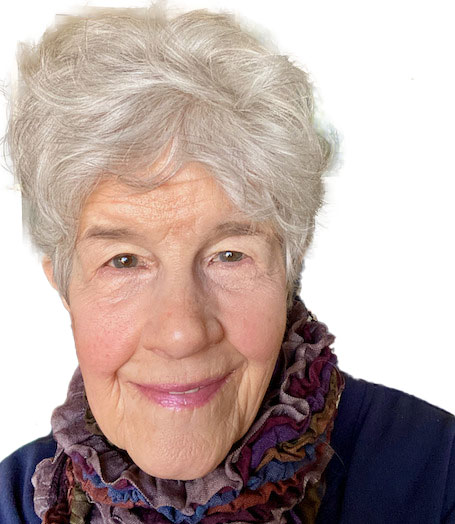Do You Have an Alternative Healing Practice?
What I Discovered About How To Protect Yourself
IMPORTANT NOTE: This is not meant to be legal advice and is for educational purposes only. Please learn what is appropriate for your own geographical area. This information is particularly directed to meridian methods practitioners, but it could be useful for anyone who is a professional “people-helper.”
This is the short version of a legal issue that has been at the center of my professional life for the last year. I want to share some of this story with you, because I think that more and more EFT and other alternative practitioners may be feeling the shadow of the law, as represented by state regulatory agencies, falling across them. I believe that it is important to take this seriously. Change how you talk about your practice so that this does not happen to you. I wish I had known all this a year ago.
What happened? Dancing with DORA...
Many of us who are EFT practitioners took Gary Craig’s rousing cry of “Try it on everything!” to heart, and we did try it on everything. This has resulted in training programs, DVDs, websites and marketing materials with language that suggests to some state licensing boards that we are doing the work of doctors and therapists without adequate professional training.
As you probably know, I am an EFT practitioner, and I frame my work as helping people with a highly sensitive, spiritual temperament to discover and embody ways of expressing themselves that make their hearts sing.
In April of 2010 I was notified that an anonymous grievance for practicing psychotherapy without a license had been filed against me with Colorado’s Department of Regulatory Agencies (DORA).
I responded to them that I was a Spiritual Life Path Coach (a profession unregulated by the state laws). However, the State handed me a Cease and Desist order, the harshest penalty available, and an extremely unusual punishment, especially as the first response. It is routine to follow up a grievance with several levels of warning and discussion. Issuing a C and D immediately is rare.
I hired legal defense. My attorney and his consultant, a former director of the Department of Regulatory Agencies, speculated that DORA was making a test case of me, in an attempt to gain control of other alternative practitioners in the state. I have since heard that a state agency can quickly run thousands of websites through a web program that searches for specific language, in order to find vulnerable websites to target.
I was in between a rock and a hard place, as the saying goes. The State was saying that if I didn’t stop my practice immediately and forever, they could send me to jail. My attorney was saying that if I did stop my practice, it would look like I agreed with the State’s claim, and that I was running scared.
I took a good look at my website and programs, and found a lot of “could-be-red-flag” therapy-like language, even though I don’t think of what I do as therapy. So I hired another attorney, whose practice specialty is professional risk management. She went through my website to suggest changes for any wording that might alert state licensing board authorities.
After thousands of (my) dollars and many months of legal wrangling with the State’s Attorney, my attorneys were able to prove that I was practicing coaching, not psychotherapy. They further showed that the State had compromised many of their own regulations in trying to create this case against me.
In the end, the lawyer had to initiate bringing my case to the Colorado Supreme Court to get real action. Before the case got underway there though, they were able at last to compel DORA to withdraw and dismiss the claim against me, and completely clear my name both in Colorado and in the National Data Base.
Here is some of what I have learned about how to reduce my legal risks. I invite you to consider what might be relevant for you :
- Know the legal regulations of your state or country.
To learn about these regulations, Google: “(your state/country) mental health licensing regulations.” - Use language in your materials and marketing that will not trigger the attention of professional regulating bodies for medicine or psychotherapy. Unless you have a degree in the field, you cannot use words like “therapy,” “counseling,” “diagnosis” or “psychology.” Even using the word “pain” is not allowed in some state regulations if you are not a physician. The word “healing” is a borderline term, not protected, but it still might flag your website.
- If you are not a licensed therapist or psychologist, avoid describing your work as doing therapy.
 This is a direct quote from the Colorado Department of Regulatory Agencies document:
This is a direct quote from the Colorado Department of Regulatory Agencies document:
“Psychotherapy” means the treatment, diagnosis, testing, assessment, or counseling in a professional relationship to assist individuals or groups to alleviate mental disorders, understand unconscious or conscious motivation, resolve emotional, relationship, or attitudinal conflicts, or modify behaviors which interfere with effective emotional, social, or intellectual functioning. Psychotherapy follows a planned procedure of intervention which takes place on a regular basis, over a period of time, or in the cases of testing, assessment, and brief psychotherapy, it can be a single intervention.The complaint about this statement is that it is so vague that it could cover many occupations, from therapist to bartender, but the state legal authorities could use this to make a claim against your practice nevertheless.
- Your wording should make it clear that with EFT or other meridian methods you are addressing the underlying energetic patterns with the goal of bringing balance and harmony within the energetic field of the person.
- Describe the theories about energetic fields (whether it is chakras, meridians, or the biofield) by saying that when the body’s energy field is balanced and flowing without disruption, the body can naturally heal itself.
- Make it clear that you do not “treat” a medical condition, and that EFT (or whatever you practice) is not a substitute for professional healthcare. I have worked a lot with fibromyalgia and chronic fatigue. Because they are diagnoses, I can’t talk about treating them. I can, however, say that I am “working with the energy structure that underlies the emotions that may create conditions like fibromyalgia.”
- It is important not to make any claims of curative ability. Remember that you cannot “guarantee” any kind of result.
Testimonials can be seen as “claims,” so be mindful of what people are saying about you. - Include a website disclaimer that is legally designed specifically for your work. Hire an attorney with professional risk management as a practice specialty to go through your website, marketing, trainings and products, noting and changing “red-flag” language.
- Learn what alternative practitioners and practices may NOT be regulated by your state licensing board. This is a changing playing field. Currently in Colorado, specifically trained coaches, ordained ministers and spiritual counselors are not regulated. However, all other practitioners must register as an “Unlicensed Psychotherapist.”
- Understand how your state characterizes the difference between therapy and coaching (if it does). This is a rising discussion in the coaching profession to differentiate the field from psychotherapy. Much information on coaching, licensing and regulations can be found at the International Coach Federation’s very useful website: http://www.coachfederation.org/
- Take coach-specific training.
There are apparently psychotherapists and psychologists who have lost their professional licenses because of ethical violations, who are now promoting themselves as coaches. The Regulatory Boards are on the lookout for people who say they are coaches without real coach training. - If a grievance is filed against you, and you are contacted by a regulatory agency, consult an attorney who is knowledgeable about your state or country’s licensing regulations for mental health practitioners before you talk with the investigator.
- Do your own healing work to clear your fears, anger, worry and anxiety before, during and after any legal concerns arise.
 Find your deep sense of center, and continually return there throughout whatever experiences arise in the process of resolving your case.
Find your deep sense of center, and continually return there throughout whatever experiences arise in the process of resolving your case.
Let this experience be a teacher for you on how to center and ground yourself.
Frame this experience as an opportunity to transform a threatening and intimidating power that appears to be outside you, larger than you, into a recognition of an un-awakened strength in you.
Seek to awaken this capacity and resource within yourself.
Reframe and release any suggestion that this happened because there is something wrong with you.
Utilize this experience to bring out the best in yourself.
Get the best help that you can, and continually trust that this situation is all working out for the best for you.
Like the Sufis say: Trust in God, and tether your camel.”
There is a more detailed version of this document here:
Reduce Legal Risks Handout
And find an interview with me about all this by Angela Treat Lyon here:
http://bit.ly/Rue-takes-a-stand
With my love and blessings to you –
Rue Hass
P.S. : A number of people have contacted me, asking to use the disclaimer on my website as a template for writing a disclaimer of their own. I appreciate that from a place of honor in themselves, they asked me for my permission first.
I have some mixed feelings about this issue.
In one way, I want to say, of course, go ahead, this would be helpful, everyone should do this!
Another part of me goes toward thinking about how I sought out extensive legal help and paid a fair amount of money for the disclaimer on the home page of my site, and other disclaimers for my books, my classes, etc.
Also, the attorney who created the disclaimers, Midge Murphy, does this as her living (while also being an energy practitioner). It feels out of integrity for me to say yes to peoples’ request to use the work she did for me on their own sites.
I know that some people will take the disclaimer on my site and fashion their own from it anyway. What you decide to do about a disclaimer for your work is up to you.
Midge’s website is www.midgemurphy.com if you want to check out the services she offers.


